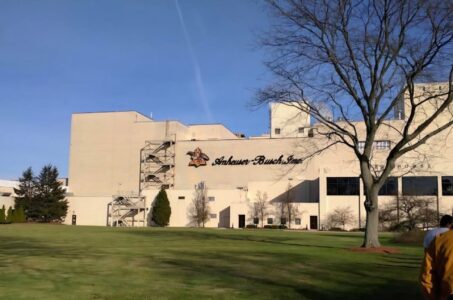Locals recall Nashua’s history of rail service

NASHUA – For almost 40 years, the city of Nashua has been without passenger rail service.
While there has been a strong push supporting the Capitol Corridor project that would connect the Gate City to the Lowell, Massachusetts, Line, members of the community who are old enough remember a time when they could board a train and travel outside the area.
March 1, 1981, was the last time the city had passenger rail of any sort, after a 13-month stretch where the federal government funded a program under President Jimmy Carter’s administration meant to demonstrate the feasibility of rail transit. After the federal grant ran out, the state opted not to support the service.
Prior to the federal experiment in the 1980s, passenger rail was a major source of transportation for residents of Nashua and elsewhere throughout the state from the mid -1800s until 1965, and then used as a supplementary source of travel until 1967, when single daily round trips were made from Massachusetts to either Dover or Concord on small, self-propelled diesel cars.
As the state continues to look into the current feasibility of bringing passenger rail, Ward 2 Alderman Rick Dowd – who also was appointed to Nashua’s Rail Committee by Mayor Jim Donchess – said he has fond memories of traveling by train when the city had commuter rail service when he was younger. So, too, does lifelong Nashua resident Robert Sampson, 82.
While Speaking with The Telegraph recently, Sampson and Dowd recounted stories about charter trains and times when they would travel with their families.
“I never went into Boston any other way except by train until I was in high school or beyond,” Sampson said. “Going to Boston was always an adventure, it was the big city when I was a kid.”
Both Dowd and Sampson spoke of the days when they would take the train to Beantown to see the Barnum & Bailey Circus during a period of years when it would not stop and set up the big top in Nashua. Dowd said even after passenger rail left the state, rails now being used for freight train services would be utilized by the circus when it would make its way through the city on its way up through New Hampshire (until 2017), when the circus disbanded.
“The Barnum & Bailey Circus used to come to Nashua and set up the big tent where Fairgrounds Middle School is, and I remember going to the circus as a kid,” Dowd said. “The circus didn’t come back to Nashua for several years, and I remember we used to always take the train and go to the circus in the Boston Garden.”
Dowd even recalled the last time the circus came to perform in the city, during which it got stuck on the incline on the tracks between West Hollis and Main streets. With the train unable to move up the grade, all the animals and equipment being freighted had to be unloaded from the train and carried to the performance location.
While recounting many of his fond memories riding the train, Sampson was able to describe some of the unique details about the trains, including the seats that had backs that could be flipped one way or the other depending on the amount of people traveling together. Passengers could make the seats face each other in order to see and talk with travel partners, or they could face the back of the seat in front of them for a more private ride.
He said he also remembers the old kerosene lights having been replaced by electrical units by the Boston and Maine Railroad Co. to better provide light, and that the fireman – a member of the train crew – would reload the steam engine with water, something his father would bring him down to the station to watch as a reward for behaving or going to the doctors.
With the ability to charter trains, Sampson said he and his entire high school class were able to take a trip to the original Boston Garden in the late 1940s during one of Nashua High School’s runs for the regional basketball title.
“The playoff game was in the Boston Garden, and they chartered a train and all us kids boarded the train at Union Station and went in and watched the,” he said. “After, we took the train back home.”
Though he was a young boy then, Dowd said he too recalls when his sister and a group of friends boarded the train that was chartered for the New England Basketball tournament, which he said was an important event at the time since the school was competing against juggernauts from other New England states.
While reminiscing, Sampson also spoke about one of his more memorable moments, when he ended up separated from his parents as a teenager when they were making their way back from Boston’s North Station.
“My folks and I had been in Boston one time, and we were dashing through North Station for the Nashua train which left on track 18,” Sampson said. “I got a little bit ahead of my parents, and as the train started to leave, I leaped on board.”
“I looked back and my parents didn’t make it,” he continued. “So, there I was, about 14 years old, by myself having to make the trip back to Boston without my parents. I had to scrounge up all the change in my pocket, it cost 97 cents to take the train, and when I got back to the Nashua Union Station I had to wait for my parents. Luckily, they arrived a few minutes later on the next train in.”
Sampson said riding the train in those days was as normal as traveling by car is today, something he would love to see happen again in New Hampshire.
“It was just a common lace thing, nothing extraordinary,” he said. “People would commute into Boston. It’s just what you did.”
Dowd said he too remembers the train being a common way of traveling from Nashua to Boston, partly because the highway infrastructure at the time was not as sophisticated or modern as what is currently available, though he does believe current traffic trends are a leading reason as to why it makes sense to bring passenger rail back to the state.
“It was very common, everybody rode the train, you know, the highway system to Boston is not what it is today, so it wasn’t easy, not that it’s easy today. It was much, much easier to take the train. I think that’s where we’re getting at again,” he said.
“Drivers get frustrated, and that doesn’t bode well for their productivity when they get to their jobs,” he added. “Or (for) their home life when they get home.”
With that high amount of traffic heading in and out of the state on major highways, Dowd said there also is an added strain on the environment as idling cars create greenhouse gasses while practically standing still during certain times of the day.”
“Environmental impact is one big thing,” he said. “Those cars are sitting there idling, polluting the air.”
Dowd said that implementing passenger rail would do quite a bit to help the economy and would have a great chance of succeeding, because it would help to bring talented young professional looking for jobs to the city. It also would cater to commuters who do not want to deal with the traffic to and from Boston during the morning and evening commutes, as well as providing young Nashua professionals the opportunity to easily travel to Boston.
“I think it would work; the fact that companies would locate in the Nashua area because they have access to all the talent coming out of the colleges in Boston,” he said. “And the kids up here, they want to be able to easily go into Boston.”
While he has fond memories of Nashua’s past passenger rail, Dowd said that he looks at other parts of the country and the world which he has traveled by train noting that in most of those places, people don’t think twice about what a positive impact it brings to their communities.
“I just went to Europe a couple years ago, and everybody rides the train; it’s like a way of life,” he said. “You fly into Geneva and right in the airport is the train station, and you go see the train stations and I swear there had to have been 10,000 or 20,000 bicycles.”
“You park your bike, lock it up, take the train wherever you are going to work,” he added. “Then, you come back at night, get your bike and go home.”
Dowd also said he has taken trains in other parts of the country, noting that when he was in the Navy at the Great Lakes training station, he took the Illinois commuter rail into Chicago, as well as having rode rail in California, Florida and many other states. He said, with his experience riding on passenger rail, he truly believes it’s a great way to travel.
“I think it’s a great source of transportation,” he said. “It’s clean, quiet.”
Sampson and Dowd both expressed a hope that through the Capitol Corridor Project passenger rail will once again be an option for those looking to travel in and out of the state.
“I hope it comes back. I’m all for it,” he continued. “If it came back and I had the occasion of going into Boston I would probably use it.”
“I would definitely be on the first passenger train to ride it there and back,” Dowd said.
Mathew Plamondon can be reached at 594-1244 or mplamondon@nashuatelegraph.com, @telegraph_MatP.



